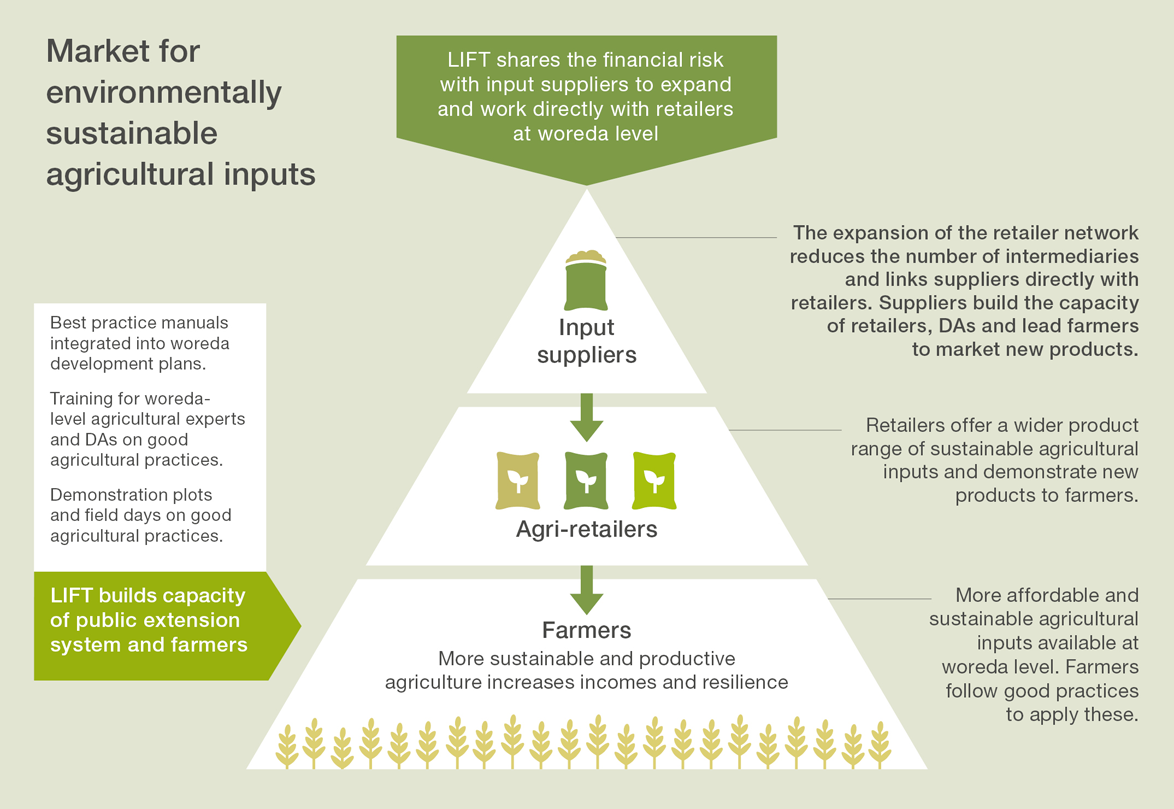retailers operational and £503,000 worth of quality inputs provided by input suppliers
Introduction
The Government of Ethiopia, with support from LIFT, issued second level land certificates (SLLCs) to increase the land tenure security of farmers, who as a result were more willing to invest in their land in a productive and sustainable way. However, to allow for this, farmers needed to have access to improved agricultural inputs and technologies that were environmentally sustainable.
The availability of environmentally sustainable inputs was low and the underdeveloped supply channels used to distribute these inputs to farmers was a major constraint for farmers looking to increase their productivity. To increase the supply of environmentally sustainable inputs, LIFT worked with private sector suppliers to expand their distribution networks and sell directly to retailers at woreda level. This not only increased farmers’ access but also reduced the price and increased the traceability of products, with fewer middle actors.
LIFT also built the capacity of agricultural experts, development agents (DAs) and farmers to increase their knowledge of good agricultural practices.

What are the benefits?
For farmers:
- Improved seeds are inexpensive but are one of the most important factors in increasing farming yields. LIFT partnered with large vegetable seed importers to help them develop distribution networks and create a continuous supply of improved seeds to farmers.
- As part of their marketing and outreach strategy, input suppliers and retailers are now offering training and advice on the correct use of their products and, as a result, building farmers’ knowledge of good agricultural practices.
- Biopesticides help control pest attacks, which can seriously harm crop productivity. They do not contaminate the environment, the crop or the people applying it. LIFT worked with a local business that developed biopesticides using local herbs, as well as suppliers of rhizobia inoculants for pulse crops.
For input suppliers:
- Key input suppliers adapted their business models and expanded their distribution networks, making new environmentally sustainable products available to more farmers. After working with LIFT, the sales of partner input suppliers increased by 10–22%.



